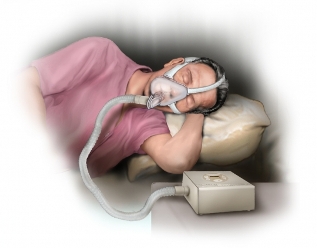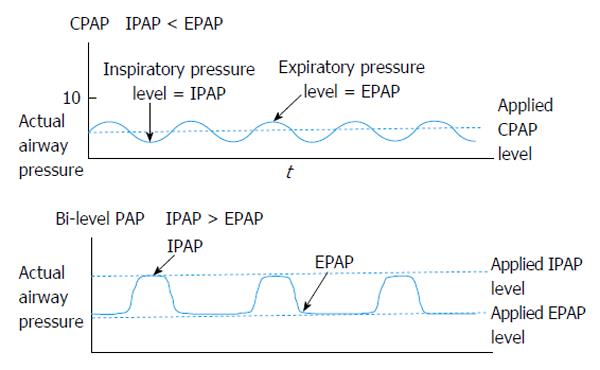Airway positive pressure continuous
Table of Contents
Table of Contents
Do you often find yourself unable to get a good night’s sleep despite being tired all day? This could be a sign of a sleep disorder, a common problem among paramedics who work long shifts and experience high levels of stress. One effective treatment for sleep disorders is continuous positive airway pressure (CPAP) therapy, which can greatly improve sleep quality and overall health.
The Pain Points of Continuous Positive Airway Pressure Therapy and Sleep Disorders in Paramedics
Paramedics are at high risk for sleep disorders due to their demanding job requirements. Working long hours, responding to emergencies, and dealing with high levels of stress can all contribute to poor sleep quality. In turn, lack of sleep can lead to a wide range of health problems, including high blood pressure, heart disease, and stroke. For paramedics, the consequences of poor sleep can be especially dire, as it can impact their ability to make quick, effective decisions in emergency situations.
The Target of Continuous Positive Airway Pressure Therapy and Sleep Disorders in Paramedics
Continuous positive airway pressure therapy is a common treatment for sleep disorders, particularly obstructive sleep apnea (OSA). OSA is a condition in which the airway becomes partially or fully blocked during sleep, leading to interruptions in breathing and frequent awakenings throughout the night. CPAP therapy involves wearing a mask over the nose and/or mouth while sleeping, which delivers a steady stream of air to keep the airway open. By preventing interruptions in breathing, CPAP therapy can improve sleep quality and reduce the risk of health problems associated with sleep disorders.
Main Points About Continuous Positive Airway Pressure Therapy and Sleep Disorders in Paramedics
CPAP therapy is a highly effective treatment for sleep disorders, including OSA, which is common among paramedics. Poor sleep quality can have serious consequences for paramedics, as it can impact their ability to make quick, effective decisions in emergency situations. By improving sleep quality, CPAP therapy can help to reduce the risk of health problems associated with sleep disorders and improve overall quality of life for paramedics.
Personal Experience with Continuous Positive Airway Pressure Therapy and Sleep Disorders in Paramedics
As a paramedic, I know firsthand the toll that lack of sleep can take on the body. Despite being exhausted after long shifts, I often found myself unable to sleep through the night, waking up feeling tired and groggy. After being diagnosed with obstructive sleep apnea, my doctor recommended CPAP therapy. Although it took some time to adjust to wearing the mask, I quickly noticed a significant improvement in my sleep quality. Not only did I feel more rested in the morning, but I was also able to stay alert and focused throughout my shifts.
Understanding the Benefits of Continuous Positive Airway Pressure Therapy for Paramedics
CPAP therapy offers a range of benefits for paramedics with sleep disorders. By improving sleep quality, it can reduce the risk of health problems, such as high blood pressure, heart disease, and stroke. It can also help to improve cognitive function and decision-making abilities, which are crucial in emergency situations. Additionally, CPAP therapy has been shown to reduce the risk of accidents and injuries due to fatigue, which can be a serious concern for paramedics.
The Mechanism of Action of Continuous Positive Airway Pressure Therapy
CPAP therapy works by delivering a continuous stream of air through a mask, which helps to keep the airway open during sleep. By preventing interruptions in breathing, CPAP therapy can improve sleep quality and reduce the frequency of awakenings throughout the night. This, in turn, can help to reduce the risk of health problems associated with sleep disorders and improve overall quality of life.
The Importance of Proper CPAP Equipment and Maintenance
Proper equipment and maintenance are crucial for the effectiveness of CPAP therapy. This includes regular cleaning of the mask and tubing, as well as ensuring that the pressure settings are correct. It is also important to use high-quality equipment that is designed for comfort and ease of use, as this will help to ensure that patients are able to comply with therapy and achieve optimal results.
Making the Most of Continuous Positive Airway Pressure Therapy
For paramedics with sleep disorders, CPAP therapy can be a lifesaver. However, it is important to work closely with a healthcare provider to ensure that the therapy is being used correctly and to address any issues that may arise. By following the proper guidelines for equipment use and maintenance, and by staying consistent with therapy, paramedics can optimize the benefits of CPAP therapy and enjoy improved sleep quality and overall health.
Question and Answer
Q: How long does it take to get used to CPAP therapy?
A: It can take some time to get used to wearing a mask while sleeping, but most patients adjust within a few weeks. It is important to stay consistent with therapy, even if it feels uncomfortable at first.
Q: Can CPAP therapy be used for other sleep disorders besides OSA?
A: CPAP therapy is primarily used for OSA, but it may also be helpful for other sleep disorders, such as central sleep apnea and complex sleep apnea syndrome. Your healthcare provider can help determine whether CPAP therapy is appropriate for your specific condition.
Q: What are some common issues that can arise with CPAP therapy?
A: Some common issues with CPAP therapy include discomfort from the mask or equipment, dry mouth or nose, and difficulty falling asleep. Your healthcare provider can help address any of these issues to ensure that you are able to use the therapy effectively.
Q: Does insurance cover CPAP therapy?
A: Many insurance plans cover CPAP therapy, but it is important to check with your specific provider to determine coverage and out-of-pocket costs.
Conclusion of Continuous Positive Airway Pressure Therapy and Sleep Disorders in Paramedics
CPAP therapy is a highly effective treatment for sleep disorders, including obstructive sleep apnea, which is common among paramedics. By improving sleep quality, CPAP therapy can help reduce the risk of serious health problems associated with sleep disorders and improve overall quality of life for paramedics. By following the proper guidelines for equipment use and maintenance, and staying consistent with therapy, paramedics can optimize the benefits of CPAP therapy and enjoy improved sleep quality and overall health.
Gallery
Continuous Positive Airway Pressure (CPAP) Devices Market

Photo Credit by: bing.com / pressure positive airway continuous cpap devices types market machine breathing bipap different insights premium press release
Continuous Positive Airway Pressure Therapy | Nursing Information

Photo Credit by: bing.com / pressure positive airway continuous education health nursing information therapy choose board
Mechanism Of Action Of Continuous Positive Airway Pressure Therapy IV

Photo Credit by: bing.com / airway mechanism
Continuous Positive Airway Pressure | UVA Health

Photo Credit by: bing.com / pressure positive airway continuous cpap machine medical nucleus copyright inc sleep
Continuous Positive Airway Pressure | Treating Sleep Apnea - YouTube

Photo Credit by: bing.com / airway positive pressure continuous


